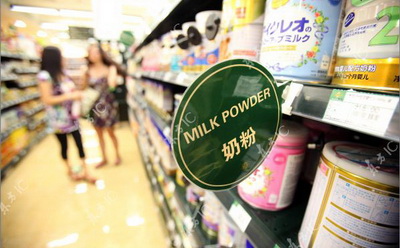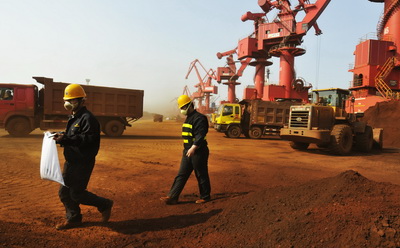Issue Wrap No. 483, August 23, 2010
Highlights from the EO print edition, Issue Wrap No. 483, August 23
Goldman Sachs Dodging Taxes in Henan Province
Cover
~ The Luohe branch of State Administration of Taxation in Henan Province expects Goldman Sachs to pay taxes of around 420 million yuan on its sale of the Henan Shuanghui Investment & Development Company.
~ The taxation agency discovered that Goldman Sachs have indirectly bought and sold shares of Henan Shuanghui Investment & Development Company through Rotary Vortex Limited, a joint-stock company Goldman established with Dinghui Investment, a well-known investment firm based in Shanghai.
~ Despite profits from the stock sales, the firm never paid any taxes.
Original article: [Chinese]
Push to Get 6,000 SOEs Under Control of Central Government Departments to Pay Dividends to Ministry of Finance
News,Cover
~ The Ministry of Finance is soliciting opinions from 82 ministerial agencies in a bid to win support for their plan to start collecting dividends from the over 6,000 central-owned enterprises (COEs) that currently operate under the control of various central government ministries and departments.
~ China's COEs can be divided into two categories: The first are the 123 COEs currently under the control of the State Council's State-owned Asset Supervision and Administration Commission (SASAC) - the central government has plans to reduce the number of these companies to between 80 and 100 by the end of the year. The other COE are those that are directly under the control of certain central government ministeries, agencies or departments.
~ The Ministry of Finance move is unlikely to result in a large increase in the amount of dividends being collected, rather it's being interpreted as a show of the central government's determination to better regulate the management of all COEs and to ensure all of the COEs are treated equally.
~ Since 2007, most of the country's 123 centrally-controlled state-owned enterprises or centrally-owned enterprises (COE) have been required to pass on between 5 and 10 percent of their profits to the SASAC every year.
~ Over the past three years, the Ministry of Finance has collected a total of 157.22 billion yuan in dividends from these companies, but only about one billion yuan of these funds has gone to general revenue, the rest has been ploughed back in to the expansion of the COE sector.
~ Examples of COEs that are not under regulated by SASAC include many of the companies started up by universites and research institutes such as the well known IT company Tsinghua Tongfang Company Limited which is tied to Tsinghua University.
Original article: [Chinese]
Centrally-controlled State-owned Enterprises Unite to Invest in Green Car Project
News, page 4
~ On August 18, 16 central-owned enterprises (COEs) announced that they had formed an "Electric-car Manufacturing Coalition".
~ The coalition, led by the State-owned Asset Supervision and Administration Commission (SASAC) encompases almost all the key components needed to dominate the emerging renewable-energy auto industry, from manufacturing to battery production and constructing charging stations.
~ Li Rongrong, director of SASAC, announced that the commision, which regulates China's COEs, would invest 1.3 billion yuan in promoting the electric-car industry this year and also plans to invest more in the future.
~ Private companies and even other state-owned enterprises are interpreting the move as a signal that the COEs are prepared to step up and get a large share of the one hundred billion yuan that the central government has said it plans to invest in this emerging field.
Original article: [Chinese]
Big Name Property Developers Might be Contained in "Black List"
News, page 4
~ Although the information office of the Ministry of Housing and Urban-Rural Development (MHURD) has denied the existence of a "black list" of property developers hoarding housing for speculation, an anonymous source with the MHURD has exposed that the list does indeed exist, but, due to contradictory definitions of what constitutes "hoarding housing," the ministry has had to delay publication of the list.
~ The China Banking Regulatory Commission has previously required the MHURD to provide a list of property companies that have hoarded houses for speculation. However, currently, the latter has only provided a "white list" of property developers who have not hoarded properties.
~ Another reason that the MHURD is hesitant to publish this list, according to the above source, lies in the fact that many large property companies will be included in the "black list".
Original article: [Chinese]
Overseas Renminbi to enter China's Inter-bank Bond Market
News, page 5
~ China's central bank has enacted plans to allow overseas financial institutions to invest RMB in the domestic financial market in an effort to globalize the RMB.
~ On August 16th, the central bank issued a notice that foreign central banks can begin investing in the mainland's interbank bond market on a trial basis through a RMB settlement service in Hong Kong, Macau, and several other regions.
~ Hong Kong's RMB reserves exceed 100 billion yuan, which, compounded with the impact of hot money inflow, will lead to further increases in asset prices.
Original article: [Chinese]
Officials and Economists Disagree on Macro Economic Outlook for August
News, page 7
~ In a recent televised interview with CCTV, Zhou Wangjun, an official with the National Development and Reform Commission, said that the government will be able to maintain the annual CPI growth rate for 2010 at under 3%.
~ Meanwhile, Andy Xie, a high-profile columnist and independent economist based in Shanghai argued that an era of inflation has already set in.
~ Officials and economists also diverge on the subject of economic growth. The official analysis is that China will not encounter a double-dip; however, domestic economists like Pan Xiangdong, chief macro-analysis at Everbright Securities, think that the industrial value-added growth rate could drop below 10 percent in the fourth quarter of this year.
~ The domestic investment situation is also uncertain. Xiong Wei, macroeconomics analyst at Haitong Securities argued that urban fixed-asset investment will experience a gradual decline until the first quarter of 2011.
~But Yin Lei, macroeconomics analyst at Shanxi Securities, is optimistic. He thinks that since the government has increased fiscal spending, the growth rate of urban fixed-assets investment will remain stable.
Original article: [Chinese]

Worries Over the Ecology of Western China
Nation, page 9
~ 2010 marks the 10th anniversary of the implementation of China's national strategy of developing its western regions. Although the economy of western regions has greatly improved during the past decade, the environment has become increasingly worse.
~ The disastrous landslide that took place in Zhouqu County, Gansu Province, on August 7 which claimed over 1,300 lives, has been partly attributed to the deterioration of the ecosystem in Zhouqu County.
~ There are many reasons for this. The first one lies in the desire of local governments for GDP growth. Forests and meadows become deserts as water and soil disappear while cities and counties are blindly expanded, and more and more hydropower stations are constructed.
~ Additionally, the selection of Gansu province as a pilot location for the development of the petrochemical industry has also harmed its environment.
Original article: [Chinese]

Just How Dangerous is Powdered Milk Formula in China?
Nation,page 12
~ In response to recent reports of the early onset of sexual maturity of infants who drank a particular brand of baby milk formula, the Chinese Ministry of Health has stated that the baby formula in question is not the cause.
~ However, the Ministry admits that the formula does contain hormones that existing detection methods do not test for.
~ After the melamine-tainted milk scandal aroused public safety concerns in 2008, the Ministry had also stated that the test does not check for melamine.
~ The Ministry recently revised and published a new testing standard on dairy products, but it still fails to anticipate other possible harmful additives.
~ "When the melamine-tainted powder scandal broke out, I thanked heaven that I didn't have a baby at the time; Who'd have thought that hormones were added to baby formula?" a consumer told the EO, "what other harmful ingredients are yet to be found?"
Original article: [Chinese]
Rizhao Steel Sued for Breaking Contract
Corporation, page 27
~ Mount Gibson Iron Ltd, an iron ore company in Australia, recently announced that China's Rizhao Steel Company had broke a contract they signed in 2008. The local arbitration agency ruled in favor of Mount Gibson and said that Rizhao Steel owed 114 million US dollars in compensation.
~ In addition, Rizhao Steel has been ordered to assume all arbitration costs as well as to pay compensation at an interest rate of 6%, starting the date of the arbitration decision.
~ Zhang Yucheng, a lawyer at Beijing Dacheng Law Office, argued that the decision is too difficult to implement.
~ "The agency and Mount Gibson will need China's legal system to assist in carrying out the ruling," he added.
Original article: [Chinese]
Are Foreign High-End Equipment Manufacturers Undercutting their Chinese Competitors?
Corporation, Page 29
~ As Chinese manufacturers have begun to independently develop high-end equipment, their foreign counterparts have been forced to greatly reduce the prices of their products in order to maintain their market share, triggering a price war with their Chinese competitors.
~ For example, an 800-kilovolt transformer drive-pipe which used to cost around 900,000 yuan, now only costs about 400,000 yuan because some Chinese companies, such as China XD Group, have developed a substitute product for it.
~ Aside from maintaining market share, foreign manufacturers are also planning to "kill" China's new-born advanced technology before it becomes too powerful. Currently, many Chinese enterprises are selling their high-end equipment at below cost in order to defeat their foreign counterparts.
Original article: [Chinese]
The views posted here belong to the commentor, and are not representative of the Economic Observer |
Related Stories
Popular

- EUROPE
- Interview: Professor Udo Steffens of the Frankfurt...
- A discussion with professor Steffens of the Frankfurt School of Finance & Management about...
Interactive
Multimedia

- EEO.COM.CN The Economic Observer Online
- Bldg 7A, Xinghua Dongli, Dongcheng District
- Beijing 100013
- Phone: +86 (10) 6420 9024
- Copyright The Economic Observer Online 2001-2011
















